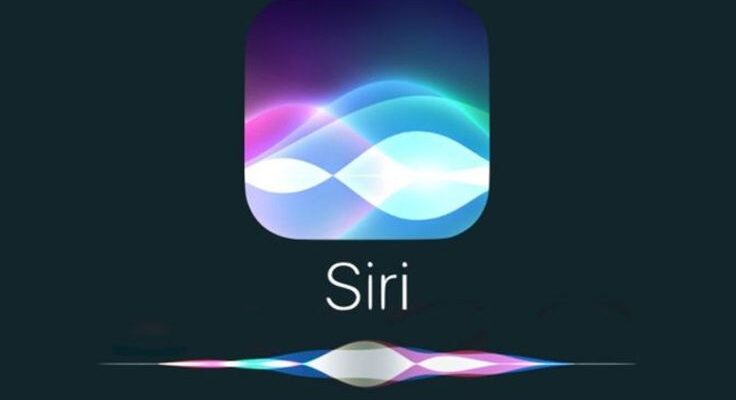In a move that signals a significant strategic recalibration, tech behemoth Apple is reportedly engaging in discussions with Alphabet, Google`s parent company, to integrate Google`s formidable Gemini AI into its long-standing voice assistant, Siri. This potential partnership underscores the rapid advancements in generative artificial intelligence and raises questions about Apple`s traditionally self-reliant approach to core technologies.

The AI Arms Race: A Shifting Landscape
The artificial intelligence landscape has been redrawing itself at an unprecedented pace. What began as niche research has quickly evolved into a central battleground for tech supremacy, particularly in the realm of generative AI. Companies are pouring billions into developing models capable of understanding, generating, and even reasoning with human-like proficiency. In this furious race, Apple, a company synonymous with groundbreaking innovation, appears to be adopting a more pragmatic stance.
For years, Siri has been a familiar, if sometimes frustrating, companion for iPhone users. While pioneering at its inception, it has increasingly struggled to keep pace with the sophisticated, context-aware capabilities offered by newer generative AI models. The current discussions with Google suggest that Cupertino might be ready to acknowledge this gap and leverage external expertise to remain competitive.
A Bid for External Brilliance: Why Google Gemini?
According to reports, Apple has proposed that Alphabet develop a tailored AI model specifically for Siri, designed to operate seamlessly on Apple`s proprietary servers. Google has reportedly already commenced training such a model, a testament to the advanced stage of these negotiations. This move is not without precedent; other industry giants, including Samsung, have already partnered with Google to infuse advanced AI into their flagship devices, highlighting a growing trend of market consolidation in AI development.
The choice of Google`s Gemini is particularly telling. Unveiled in late 2023, and with its more powerful 2.5 Pro version released this year, Gemini has rapidly distinguished itself as a top-tier generative AI model. Developers laud its strong reasoning capabilities and its superior performance across various benchmarks, often outshining competitors like ChatGPT, DeepSeek, and Grok. As Roman Dushkin, General Director of “A-Ya Expert,” candidly puts it, Apple`s internal generative AI efforts might be seen as “last-generation,” with the company`s leadership potentially having “missed the boat” by underestimating the transformative power of these technologies.
Siri`s Renaissance or a Concession of Control?
This potential partnership presents a dual narrative for Apple. On one hand, it could usher in a long-overdue renaissance for Siri, transforming it from a somewhat limited voice assistant into a truly intelligent, versatile companion capable of handling complex queries and nuanced interactions. Imagine Siri not just setting alarms, but engaging in meaningful conversations, summarizing lengthy documents, or even composing creative texts – capabilities currently the domain of advanced generative AIs.
On the other hand, for a company that prides itself on end-to-end control over its hardware and software ecosystem, this move represents a significant departure. It implies a recognition that even a tech titan like Apple cannot, or perhaps chooses not to, develop every cutting-edge technology internally, especially when the pace of innovation is so blistering. The irony isn`t lost on observers: the company that once revolutionized personal computing and mobile technology is now looking to an erstwhile rival for a critical component of its future.
“I would not say that Siri has any significant shortcomings that would make Apple decide to completely change the paradigm and switch to Google technologies. Here, rather, there is a certain market consolidation. Many, even the most advanced manufacturers of computer and mobile technology, prefer to use third-party AI assistants. Most likely, Apple decided to follow the same path, especially since its closest competitor, Samsung, recently became a partner with Google.”
The Broader Implications for the Tech Ecosystem
The news of this potential collaboration sent a ripple of excitement through the markets, with Apple`s shares experiencing a momentary 1.5% bump. This market reaction underscores the perceived importance of robust AI capabilities for future growth and competitive advantage. Beyond stock movements, such a partnership could reshape the competitive landscape, setting a precedent for how major players navigate the complexities of AI development.
It highlights that in the age of generative AI, proprietary walled gardens might need to become a bit more permeable. The sheer computational power, data, and expertise required to train and maintain these advanced models make broad partnerships an increasingly attractive, if not essential, strategy. For users, this could mean a more unified and powerful AI experience across different platforms, blurring the lines between ecosystems and prioritizing functionality over brand loyalty.
Looking Ahead: A Smarter Siri, A Smarter World?
While Apple continues its internal AI development efforts (reportedly on projects named Linwood and Glenwood), the pursuit of external expertise from Google`s Gemini suggests a pragmatic recognition of current market realities. The future of Siri, and indeed of personal AI assistants, may well lie in collaborative innovation. As these tech giants join forces, users can anticipate a smarter, more capable Siri, transforming their daily interactions with their beloved devices and, perhaps, ushering in a truly intelligent era of personal computing.








